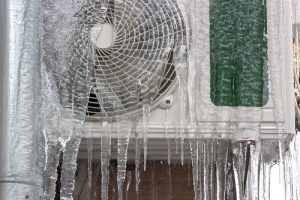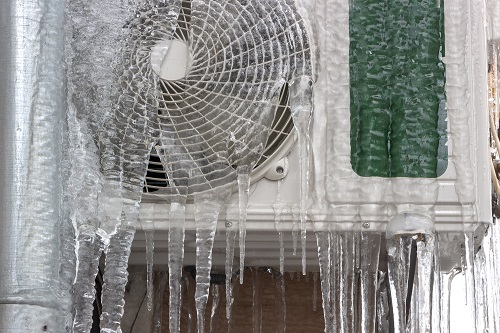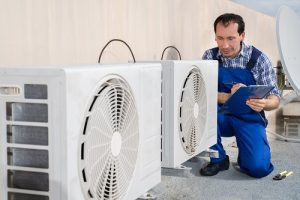 In the heat of summer, it can be surprising to find a piece of ice on your air conditioning system. This is not uncommon. Air conditioning units are self-contained systems that consist of interdependent and interconnected parts. Any one of these components can cause serious problems. This is the main problem with frozen coils.
In the heat of summer, it can be surprising to find a piece of ice on your air conditioning system. This is not uncommon. Air conditioning units are self-contained systems that consist of interdependent and interconnected parts. Any one of these components can cause serious problems. This is the main problem with frozen coils.
What can you do if your Air Conditioning unit freezes up?
How does an air conditioning system work?
Many people believe that air conditioners work by introducing cool air to a building. This is not entirely accurate. Air conditioners work by pumping warm air outside of a room, much like a fridge. A fridge only cools a small area that is insulated, while an air conditioner is responsible for cooling a larger space.
They come in many different sizes and shapes, but all of them work the same way. These systems contain chemicals that quickly change from liquid to gas. The chemicals are enclosed in coils that travel through a closed-loop system. Three stations are located along the route to control the temperature, pressure, and state of the refrigerant. The evaporator, the compressor, and the condenser are these stations.
Station 1: The evaporator coil absorbs heat
First, the warm air is drawn from the room and blown over the evaporator coil by a vent. The heat is absorbed by the refrigerant and it turns from liquid into gas. The cold air is then blown into the air ducts, which distribute it in the room. The refrigerant is now in a gaseous form and continues to move along the loop system toward the second station, the condenser.
Station 2: Compressor increases the refrigerant temperatures
The cooling fluid travels outside the compressor. It enters the compressor as a low-pressure gas, and leaves as a hot, high-pressure gas, before continuing to the condenser.
As the name suggests, the compressor is responsible for reducing the volume of the gas by pressing it between two solid objects. This also increases the temperature of the gas.
Station 3: Heat transfer outside
When the refrigerant reaches the condenser and is exposed to cool air, it becomes a hot vapor. You’ll see metal fins around the AC unit’s housing if you have ever looked inside. These fins are designed to help dissipate the heat faster. The refrigerant will be significantly cooler after it leaves the condenser as a result. The high pressure has caused it to change from a liquid to a gas. Now that the refrigerant has changed back to a cool, liquid state, it is ready to return to Station 1 and repeat this process.
What causes an AC unit to freeze?
When there is a malfunction that causes the evaporator to overcool, the refrigerant will freeze. Frozen ac coils are a sign that your AC is not in good health.
You should know what can cause your AC to freeze so that you can fix the problem. AC freezing can be caused by two different things:
Airflow blocked
A constant flow of air is needed to keep the coils from freezing and causing condensation. Filters that are dirty or clogged can disrupt airflow and cause your system to freeze. It’s crucial to replace your filters once to three times a year.
Mechanical problems or leakage of refrigerant
Air conditioners are machines with many moving parts. They can stop working or become stuck. Filters can clog, fans can stop, and leaks may occur. The refrigerant will expand too much if any of these disruptions cause a decrease in pressure. The same thing would happen if a leak caused low refrigerant.
How to prevent your AC from freezing
It can be alarming to see your air conditioner covered in ice. This can be prevented by performing regular maintenance.
Service your unit at least every 12 months. You can even serve it twice a year, depending on the frequency of use. If you want your air conditioner to work efficiently for many years, it needs regular maintenance.
Regular maintenance ensures that your system operates at its maximum capacity and provides faster cooling. This reduces the load on your AC, as minor problems can be detected and corrected early. Scheduled checkups also reduce the risk of unexpected repairs. A qualified HVAC contractor in Knoxville TN, for example, is trained to look for leaks of refrigerant. Frozen ac coils are often caused by low levels of refrigerant.
As a homeowner, you can do some things to extend the life expectancy of your air conditioner. Even something as simple as changing your system air filters each month can save you thousands in repair costs. It will also prevent your system from freezing when you are most in need.
 What to do if your AC freezes up
What to do if your AC freezes up
You may have a larger problem if you leave your AC unit frozen for a long time. Sometimes the problem can be resolved with some troubleshooting. You’ll have to contact a qualified HVAC technician if the problem persists.
How to solve this problem?
Step 1: Thaw
Turn off the AC and let it melt. Do not operate the system until it has completely defrosted and dried. Avoid using your air conditioner when it is frozen. This could put undue strain on the compressor.
Note: Your AC’s compressor is its most expensive component. This valuable component could be damaged by excessive strain, resulting in a costly service call or replacement. Don’t break the ice to make it thaw quicker – this could cause damage to multiple parts. Allow your AC system to thaw out and dry.
You may only need to let the system defrost and dry in some cases to get it back to normal. Turn on the blower and restore power to your system.
Step 2: Fix the cause
Your air conditioner in Knoxville TN could freeze for several reasons:
Replace air filters after checking them
Clean air filters are essential for a healthy home. To maintain optimal performance, they need to be changed or cleaned periodically. You should clean your AC filters at least twice a week during peak seasons and replace them every three months.
Check your thermostat and fan settings
Your AC may not be able to transfer heat effectively from the interior to the exterior if the temperature is set too low. Low fan speeds can also cause your AC to be overworked, causing it to have difficulty maintaining the temperature set. On hotter days, increase the fan speed to maintain airflow.
Run AC during cold nights
Your AC can freeze on cool summer nights, as it is designed to work within certain temperature thresholds. The refrigerant will freeze any moisture in the air if the temperature is below the threshold.
Bad compressor
This is the worst-case scenario. The AC coils can freeze if the compressor is worn out. A bad compressor is not something you can fix. You can contact your HVAC provider in an emergency.
You can fix some air conditioning issues yourself. The more complex problems require an HVAC technician to inspect them.
Need emergency HVAC repair service? HVAC technicians are available to help you. We can take the stress and guesswork out of HVAC maintenance. Make an appointment now. From AC maintenance and installation to the replacement of heating or AC units, we do it all. Call J.C.’s Heating and Air now.
Like our Facebook page for more great info about HVAC services.
Areas Served: Corryton, Fountain City, Halls Crossroads, Farragut, Powell, Knoxville, Knox County, Oak Ridge, Lenoir City


 What to do if your AC freezes up
What to do if your AC freezes up
